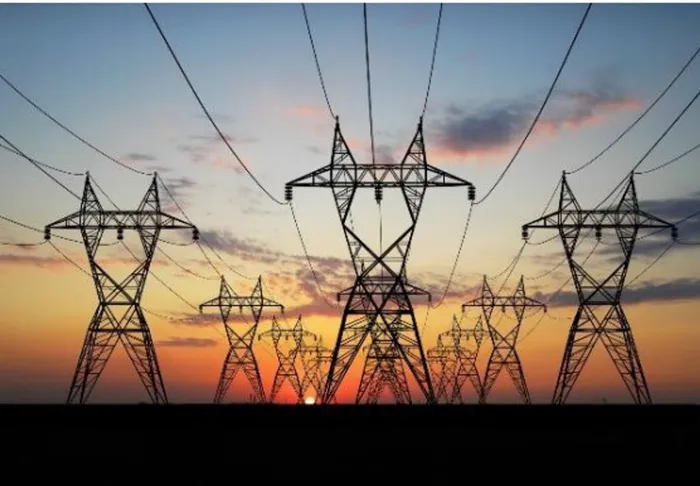Electricity industry raises concerns over Nersa’s readiness for the new energy landscape
ENERGY

"The first phase is 1 164 kilometers. We have identified corridors in the Northern Cape, North West, and Gauteng. Once we complete those, we will get 3 200 megawatts unlocked as a result of that," Minister Kgosientsho Ramokgopa said.
Image: Supplied
Stakeholders in the electricity industry are voicing concerns regarding the capacity of the Energy Regulator of South Africa (Nersa) to fulfil its expanded role as South Africa navigates the complexities of its evolving energy market.
This heightened scrutiny comes in the wake of a stakeholder engagement session held by the Portfolio Committee on Electricity and Energy, which included discussions with various stakeholders such as labour unions and the Just Energy Transition (JET) Project Monitoring Unit (PMU).
During this session, Minister for Electricity and Energy Kgosientso Ramakgopa assured lawmakers that the revised Integrated Resource Plan (IRP) would soon be adopted by Cabinet, a critical step in the nation’s energy transition.
However, Dr Wickus Kruger of the JET PMU highlighted the urgent need for Nersa to bolster its capacity through additional staff and enhanced skill sets to effectively regulate the forthcoming wholesale electricity market.
"I think given the expanded mandate under the Electricity Regulation Amendment Act, specifically related to markets, the wholesale electricity market being established. I think there is more that needs to be done. And so it's very encouraging to see that Nersa is setting up an electricity markets advisory forum," Kruger said.
"What I do think would help further is to ensure that board appointments reflect the skill set needed to be able to regulate a wholesale electricity market. And so one of the key things to track, I think, would be the appointment of a permanent member for electricity on the Nersa board."
Kruger emphasised that the regulatory body’s board appointments must align with the required skill set to oversee a wholesale electricity market effectively.
One of the critical issues raised by Kruger was the qualification criteria within the Independent Transmission Programme (ITP), which, as it currently stands, poses significant barriers for local companies to participate.
"It is very difficult for South African companies to qualify and to participate in the ITP process as it is currently envisaged," he said.
"And so I think it would also be important to see as the program progresses and we've kind of moved beyond the pilot ITP that these qualification criteria be reviewed and reformed to include more participation specifically from South African companies that are able to play in this space."
The ITP is structured as a collaborative model, allowing the government to dictate which transmission lines are awarded to the private sector, while ensuring that the operation remains under the purview of national transmission companies.
Neil Cole, senior manager for JET PMU, further elaborated on how the ITP would function closely to the Renewable Energy Independent Power Producer Procurement Programme (REIPP), with proposals driven by directives from the Minister of Electricity and Energy.
"So private investors are not going to be cherry-picking. They would need to submit proposals based on the determination by the Minister of Electricity and Energy, and the Request for Proposal (RFP) that is issued," he said.
"And that RFP would be issued in collaboration or jointly by the National Transmission Company of SA. And remember that the Transmission Development Plan still covers the plan for the transmission expansion, just that the ITP is issuing an RFP under the independent transmission program for private investors to invest in the TDP."
Reflecting on the timelines surrounding the ITP, Minister Ramakgopa confirmed that the government was progressing as planned, with an RFP set to be released in November of this year following bids from more than 800 participants, 85% of them being global players.
Ramakgopa said that at peak, the NTCSA would be building over 2 000 kilometres per annum.
"Yes, it's true. Eskom has been building substantially less. But the nature of the ITP, that is the private sector that is building. The first phase is 1 164 kilometers. We have identified corridors in the Northern Cape, North West, and Gauteng. Once we complete those, we will get 3 200 megawatts unlocked as a result of that," Ramokgopa said.
"So I'm confident about the ITP program. It is the most consequential program of a post-apartheid government. R140 billion, 14 000 kilometers."
In the backdrop, director-general at the energy department, Thabo Kekana, voiced concerns over the anticipated loss of capacity from decommissioned coal-fired stations and the urgency to replace these with renewable generation.
Kekana outlined the current pipeline of projects expected to deliver five gigawatts by 2030, reinforcing the government's commitment to a sustainable energy future.